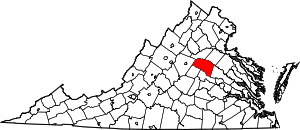The DPVA chair blocked an activist on social media for criticizing rural efforts from the party
The latest in Virginia politics.
This is a daily newsletter covering Virginia politics from top to bottom. Please consider supporting non-partisan, independent news by becoming a paid subscriber today.
Money isn’t everything. The seven Democrats who lost in the House had a large cash advantage
The Republicans flipped seven seats in the House of Delegates during last month’s general election giving them a slim 52-48 majority in the House of Delegates.
Here are the seven Democrats who were defeated and what each candidate raised according to the Department of Elections.
Democratic incumbent Alex Askew lost to Karen Greenhalgh in HD-85
Askew raised $2,310,631 compared to Greenhalgh’s $1,054,949.
Democratic incumbent Chris Hurst lost to Republican Jason Ballard in HD-12
Hurst raised $1,703,629 compared to Ballards’ $1,047,735.
Democratic incumbent Martha Mugler lost to Republican AC Cordoza in HD-91.
Mugler raised $654,344 compared to Cordoza’s $60,330
The longest-serving Democratic incumbent to lose last month was Roz Tyler in HD-75. Republican Otto Wachsmann defeated her.
Tyler raised $1,514,495 compared to Wachmann’s $902,762.
Democratic incumbent Nancy Guy lost to Republican Tim Anderson in HD-83.
Guy raised $2,175,443 compared to Anderson’s $924,034.
Democratic incumbent Josh Cole lost to Republican Tara Durant in HD-28.
Cole raised $2,430,940 compared to Durant’s $1,112,030.
Democratic incumbent Lashrecse Aird lost to Republican Kim Taylor in HD-63
Aird raised $1,509,705 compared to Taylor’s $267,273.
Executive Schedule
Governor Northam is set to attend the Deployment Ceremony of the 1st Battalion, 111th Field Artillery Regiment in Virginia Beach this morning.
Northam will be making announcements about broadband at Goochland Fire Station 6 and Blue Ridge Community College this afternoon.
Louisa County will drastically be impacted by redistricting if the proposal is approved.
by Tammy Purcell of Engage Louisa
A pair of special masters appointed by the Supreme Court of Virginia (SCOVA) released draft maps for state legislative and congressional districts last week that could shake up Virginia’s political landscape and significantly impact Louisa County.
If SCOVA chooses to adopt the proposed maps, Louisa voters would find themselves in unfamiliar territory at both the state and federal level. The map drawers drew the county into a new congressional district and split it into two new state senate and House of Delegates districts.
The proposed Congressional map moves all of Louisa County from the Seventh Congressional District into a redrawn First Congressional District. The right-leaning district would stretch from central Virginia to the Chesapeake Bay and include all or part of 22 localities.
It would reach as far west as Fluvanna and stretch east across the Middle Peninsula and Northern Neck, encompassing a slice of western Henrico where current Seventh District Congresswoman Abigail Spanberger (D-Henrico) resides. The First is currently represented by Republican Rob Wittman, whose Montross home would remain safely within its boundaries.
The map dismantles Spanberger’s current district, moving parts of the Seventh into redrawn First, Fourth, Fifth, and 10th districts. Map drawers plotted a new Seventh in northern Virginia, centered on Democratic-leaning Prince William County.
The proposed state legislative maps would sever Louisa from its current representatives in Richmond: 22nd District Senator Mark Peake (R-Lynchburg), 17th District Senator Bryce Reeves (R-Spotsylvania), and 56th District Delegate John McGuire (R-Goochland).
The Senate proposal splits Louisa County, drawing the Zion, Mechanicsvillle, and Patrick Henry 1 precincts into the Democrat-friendly 11th District, which includes the City of Charlottesville, and Albemarle, Nelson, and Amherst counties. No incumbent lives within the proposed district’s boundaries.
The rest of Louisa would be drawn into the 10th Senate District, which includes all or part of 10 localities. The strong Republican district would stretch east into Hanover and encompass Fluvanna and Goochland while reaching as far south as Appomattox. No incumbent currently lives in the proposed district.
The House of Delegates draft also splits the county, placing the same three precincts into the 55th House District. The Democrat-leaning seat includes most of Albemarle and a slice of northern Nelson. Republican Delegate Rob Bell resides in the proposed district.
The remainder of Louisa would fall into the 59th House District, which would reach across western Hanover and grab a slice of Henrico around Glen Allen. The solid Republican district currently has no incumbent within its boundaries.
Under Virginia law, state legislators are required to live in the district they represent. There is no such requirement for Congressional representatives.
Voters revamped Virginia’s redistricting process last year, passing a constitutional amendment aimed at limiting partisan gerrymandering. The amendment established the bipartisan Virginia Redistricting Commission, tasking its sixteen members with crafting new districts based on data from the 2020 census. Beset with partisan bickering, the commission failed to reach consensus, leaving the Virginia Supreme Court in charge of drawing new maps.
In November, the court selected a pair of special masters to collaborate on the maps: Real Clear Politics analyst Sean Trende and University of California-Irvine professor Bernard Grofman. Republican leaders in the General Assembly recommended Trende while Democrats recommended Grofman.
Though the maps aren’t final, they’ve already thrown the race in the current Seventh Congressional District into disarray, potentially complicating Spanberger’s path to re-election and the plans of a host of Republicans eager to challenge her.
At publication time, Spanberger hadn’t issued a statement on the proposed district. She could choose to run in the new Seventh, a seat already attracting interest from a crowd of northern Virginia Democrats.
Reeves, who announced plans to run in the Seventh last month, quickly retooled Wednesday night, shortly after the draft maps were released. He tweeted that he now intends to run in the 10th, a Loudoun County-anchored district that would stretch south to include much of Spotsylvania, where Reeves resides, and other parts of his 17th Senate District. Democrat Jennifer Wexton currently represents the 10th.
Other Republican contenders in the Seventh have found themselves potentially drawn into the First with Wittman, a Republican incumbent. Taylor Keeney, a Goochland County resident who announced plans to run this summer, released a statement late last week, saying she would wait for final maps but has no intention of challenging Wittman.
McGuire, who quietly launched his campaign last month, is also taking a wait-and-see approach. According to Virginia Scope, he said in a statement that he and his wife are “waiting for a final congressional map to be approved by the Virginia Supreme Court before we make any decisions.”






